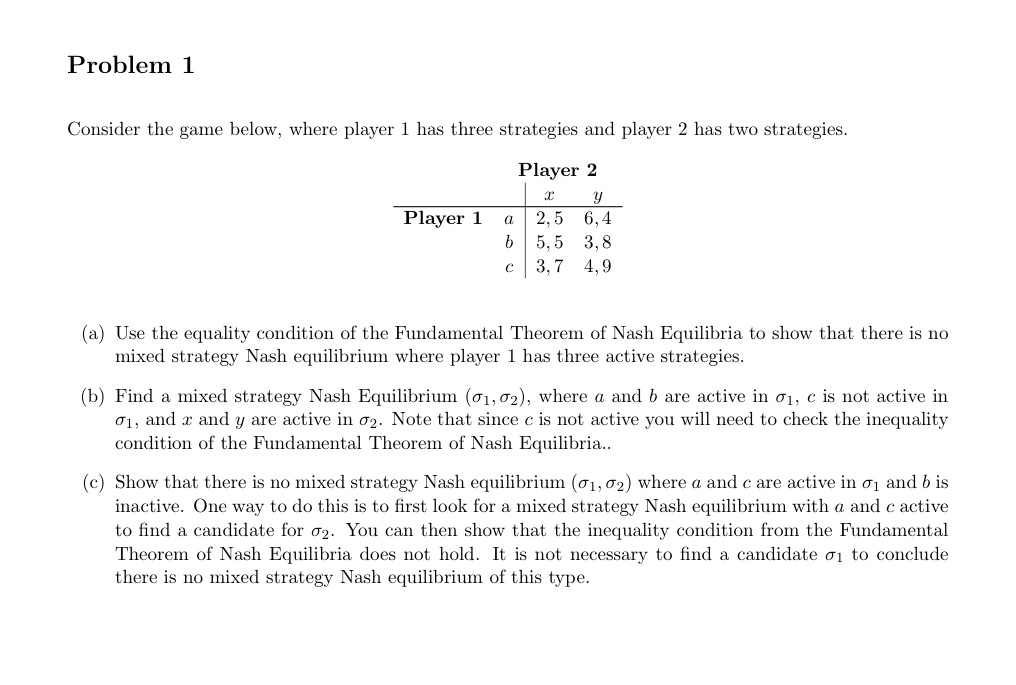Answered step by step
Verified Expert Solution
Question
1 Approved Answer
Problem 1 Consider the game below, where player 1 has three strategies and player 2 has two strategies. Player 2 X Y 2,5 6,4

Problem 1 Consider the game below, where player 1 has three strategies and player 2 has two strategies. Player 2 X Y 2,5 6,4 5,5 3,8 C 3,7 4,9 Player 1 a b (a) Use the equality condition of the Fundamental Theorem of Nash Equilibria to show that there is no mixed strategy Nash equilibrium where player 1 has three active strategies. (b) Find a mixed strategy Nash Equilibrium (01,02), where a and b are active in 01, c is not active in 01, and x and y are active in 02. Note that since c is not active you will need to check the inequality condition of the Fundamental Theorem of Nash Equilibria.. (c) Show that there is no mixed strategy Nash equilibrium (01,02) where a and c are active in o and b is inactive. One way to do this is to first look for a mixed strategy Nash equilibrium with a and c active to find a candidate for 02. You can then show that the inequality condition from the Fundamental Theorem of Nash Equilibria does not hold. It is not necessary to find a candidate 0 to conclude there is no mixed strategy Nash equilibrium of this type.
Step by Step Solution
★★★★★
3.53 Rating (156 Votes )
There are 3 Steps involved in it
Step: 1
a The equality condition of the Fundamental Theorem of Nash Equilibria states that for a mixed strategy Nash equilibrium the expected payoff for each ...
Get Instant Access to Expert-Tailored Solutions
See step-by-step solutions with expert insights and AI powered tools for academic success
Step: 2

Step: 3

Ace Your Homework with AI
Get the answers you need in no time with our AI-driven, step-by-step assistance
Get Started


